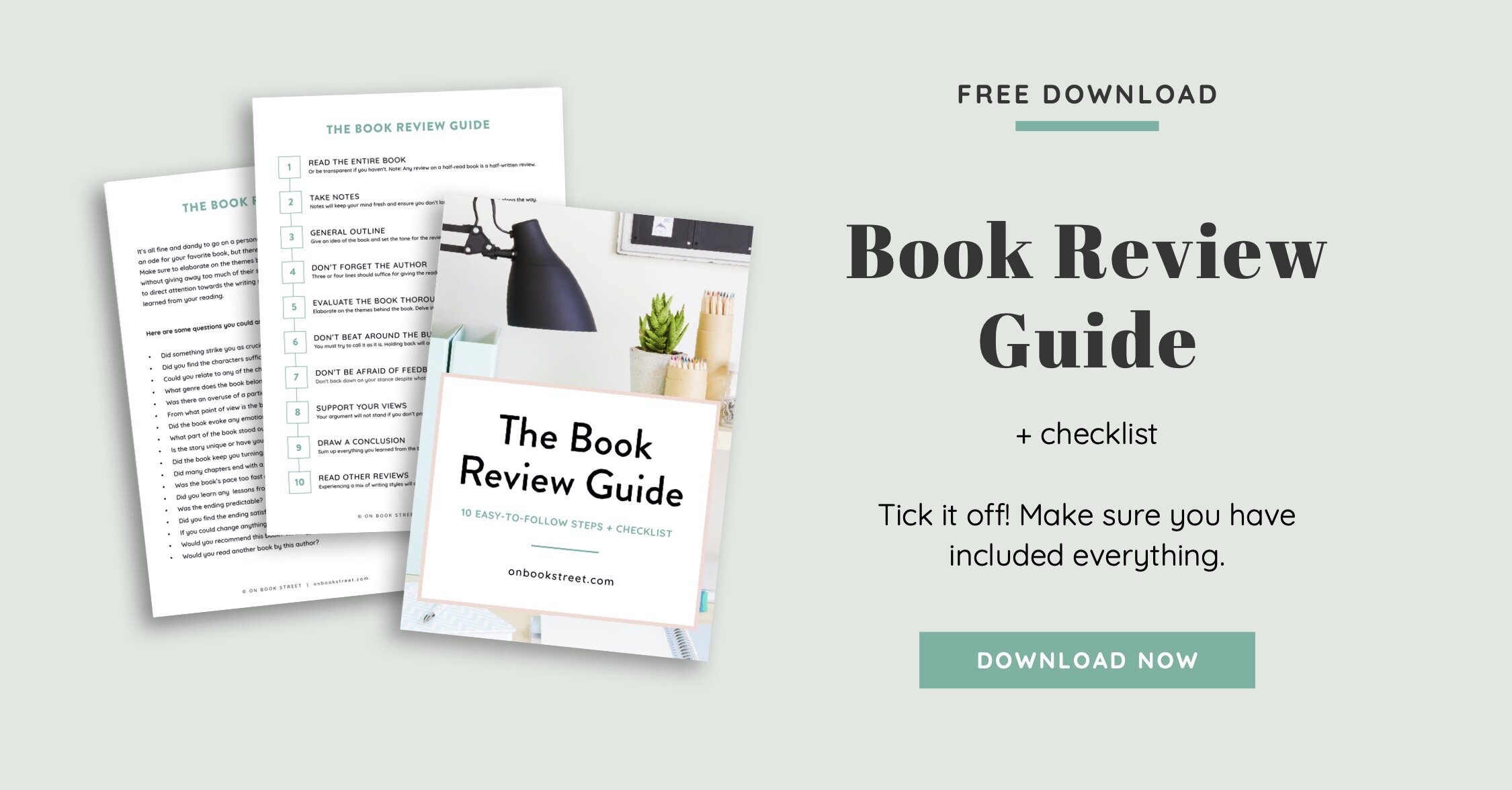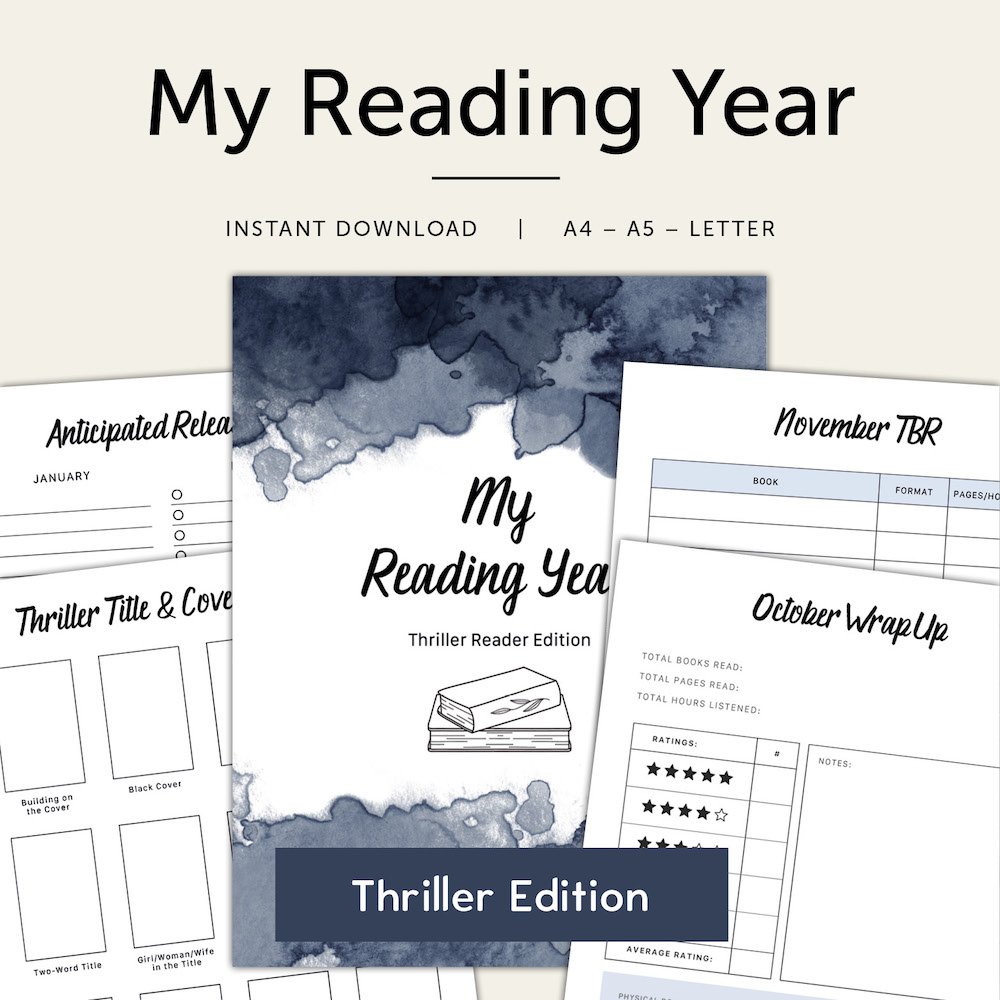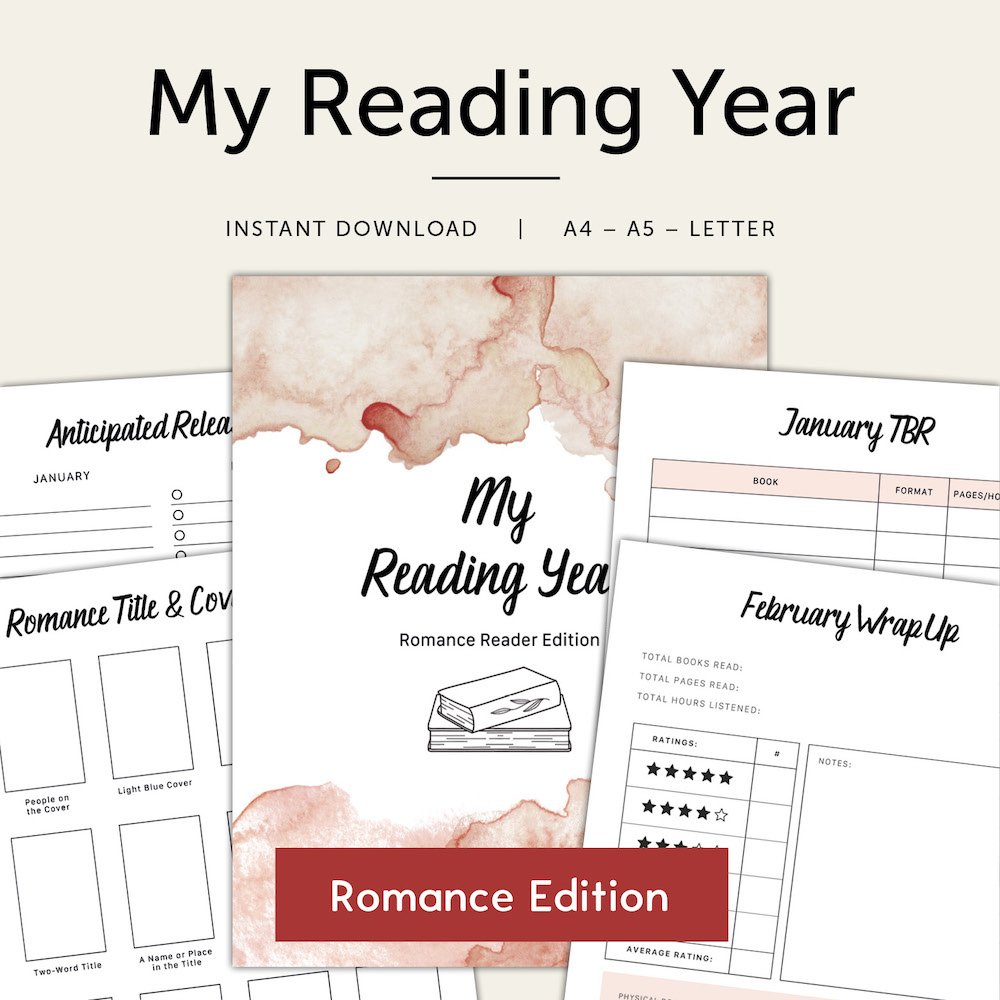How to Write a Book Review in 10 Steps – Beginner’s Guide
So, you want to get into writing book reviews.
Maybe you discovered that it’s harder than it seems - along with everyone else who’s tried before you.
Maybe you like to do some research before jumping headfirst into any new endeavour.
Whatever the reason you've happened upon this article, you will find out how to navigate the intricate and enthralling world of book reviews. There’s a long road ahead, but it’s a fulfilling and delightful road so hop right in and get started!
In 10 Steps to a Great Book Review
Read the Entire Book
Take Notes of Said Book
Give an Idea of the Book Outline
Don’t Forget the Author
Evaluate the Book Thoroughly
Don’t Beat Around the Bush
Don’t Be Afraid of Adverse Feedback
Support Your Views
Draw a Conclusion
Read Other Reviews
1. Read the Entire Book
I’m not insulting your intelligence with this one – there are many DNF (did not finish) book reviews flitting around. Any review on a half-read book is automatically a half-written review, and no one wants to read a half-written review.
You’ll not only do your review a disservice but any potential reader and the author of the book. It is impossible to paint a full, all-inclusive picture of the book if you have not reached its final page. Though you may want to fling the thing out of the nearest window you must remember that every page is vital to a fully-fledged and professional review. Tough it out, knuckle down, and just think of the cathartic relief as you spill your overflowing criticism into your scathing book review.
Or just DNF that thing and don't write one.
If you absolutely have to write a book review for a book you didn’t finish, make sure you are super transparent about the fact that you haven’t read the whole book and can’t paint a full picture.
2. Take Notes of Said Book
Does something catch your eye? Makes you ponder? Strikes you as crucial to the book’s flow? Don’t assign it to memory – it’s not always as reliable as we like to think.
Notes will keep your mind fresh and ensure you don’t lose any vital perspective along the way. You may even begin to notice some themes, patterns or connections throughout your notes thus making your review an in-depth and hashed out one.
If recoil at the idea of writing on a book and are appalled by the thought of carrying around a notebook – you can pick yourself up some sticky notes or tags to place throughout the book. This sticky method is highly recommended as it helps you find exactly what section of the book you were commenting on.
3. Give an Idea of the Book Outline
There’s really no need for an extensive run-through of the book. Summary writers have already done that for you. You’re here to write a book review and people need to know what you’re reviewing.
Keep that in mind as you introduce your piece. The introduction should be concise and to the point. You don’t want to lose people before you’ve even given one opinion on the book at hand. Keep your eye on the prize at all times – your readers are here to discover your insight and opinion on a book. A story can become good or bad depending on how it is written – that’s what your readers really want to know.
This is also your chance to set the tone for the review – let readers know how you will be continuing throughout, don’t leave them waiting!
4. Don’t Forget the Author
You must give credit where credit is due. Writing a book is a laborious task that can take years of work on just the editing alone!
Reference any milestones the author may have achieved throughout their lifetime. Let the reader know about any life experiences they had that could possibly have influenced their writing. If they have a degree – mention it. Exercise a literary profession? Shout it from the rooftops.
Three or four lines should suffice for giving the reader an idea of who is behind the book. In this section, you should also include the publisher, translator and any other essential information pertaining to the book.
5. Evaluate the Book Thoroughly
It’s all fine and dandy to go on a personal diatribe against a book or weave together an ode for your favourite book, but there is so much more to a proper book review than this. Make sure to elaborate on the themes behind the book. Delve into the characters without giving away too much of their storyline, show how the character dynamics develop and interweave throughout the book. During this part of the review, it is possible to perform character analysis’ and opine on whether you found the character to be sufficiently developed and realistic.
During the evaluation any possible tropes such as a ‘Mary Sue’ character should be noted and reviewed – take into account whether the trope is appropriate for the storyline or if it is utilized due to lazy writing.
Be sure to direct attention towards the writing style of the author – whether it be flippant, conversational or formal – the tone and style can completely change a reader’s experience of a book. This point also ties into the importance of pointing towards a specific genre for the book. The reader wants to know what they’re in for. If there’s an overuse of a particular trope, plot device or the characters all have suspiciously similar dialogue – be sure to mention it. Don’t forget to sing the praises of all the beautiful aspects of the book that you might find, maybe even quoting some particularly striking lines from the book to provide your reader with insight into the book.
Even share what you have learned from your reading. If you have learned how to simultaneously let go of the past and remember it from “The Picture of Dorian Gray” or how completely changing who you truly are for someone else doesn’t benefit anyone from “The Great Gatsby”, then let the reader know. Sharing the knowledge and lessons you have garnered from a book despite your opinions can be incredibly beneficial to the reader, giving them the opportunity to follow in your footsteps. This is only one part of what makes reviewing books so rewarding.
6. Don’t Beat Around the Bush
Take a moment to shake off any social restraints before you write. A good reviewer will do the book justice, whether that means sending it to literary jail or completely absolving it of any literary crimes.
You must try to call it as it is. After completing that task (particularly challenging for beginners) you then must give your opinion on it. Holding back will only serve as a hindrance to your reviewing capabilities. No one reads book reviews for their impartial and incomplete viewpoints, and even if your opinion is that the book is middle of the road, then let the reader know why. Readers and the entire literary world will thank you.
Remember that reading tastes differ. What you may list as a book’s flaw some other reader could have a particular interest in. I’ve discovered some of my favourite books from reading “bad” reviews.
7. Don’t Be Afraid of Adverse Feedback
Speaking of not being afraid, you’re going to come across people who don’t agree with you. Though this stands for every aspect of life – readers can be particularly opinionated and sentimental about certain books. Remember your opinion is as good as any.
Reading is completely subjective. The writer creates a world on paper and then opens it up to you, fully aware that the world will not appear the same to you. That’s a risk all writers take. Don’t back down on your stance despite what people may say. Be open and honest about your opinions - that’s a risk that reviewers take.
8. Support Your Views
You’ve dug the foundations now build the building. Convincing the reader of your views is the majority of the battle. Your argument will not stand if you don’t provide it with substance and armour.
Elaborate on why you think the way you do. Say, for example, you just couldn’t relate to a character that was intended by the writer to be relatable. You might feel that the author focused far too much on this aspect of the character to the point that it was unrealistic. Don’t let the reader jump to a conclusion – lead them to it.
9. Draw a Conclusion
It is imperative that you sum up everything you learned from the book. Pack your final punch and don’t leave any loose ends.
The conclusion is used as a time to reflect back over what you’ve written, to solidify your ideas into the minds of anyone who could be thinking of potentially purchasing the book you are reviewing.
You are looking to leave your readers with a lasting view of the book, letting them know that you are certain about your views and the whole review wasn’t just written hastily without any real interest. So, as you could’ve guessed, the conclusion is not the time for tiptoeing around the subject or taking back your opinions. There is no room for “maybe ifs” and “buts” in the conclusion – stick to your guns!
10. Read Other Book Reviews
Generally, there are two things that most professional writers will recommend to people looking to get into the field: Read a lot and write a lot.
Perpetual reading and writing are the hallmarks of all good writers. You may think that since you can already read and write that it’s not of much importance but the knowledge and tidbits you glean from simply exercising your literary muscles every day is indispensable. It doesn’t have to be overwhelming and can even be enjoyable.
Look up reviews of your favourite book, read through a number of them, and then write your own review. Experiencing a mix of writing styles will only enrich your own and make it more unique.
So, there you have it – helpful guidelines on how to write either your first book review or to hone your book reviewing skills.
BEST OF LUCK ON YOUR REVIEWING JOURNEY!
If you’re not sure where to start and just need a push, or are looking to improve your reviews why not try out my easy-to-follow book review guide. You won’t even run the risk of forgetting crucial steps while reviewing due to its checklist formatting, ensuring that you’ve included all essential information. So, what are you waiting for?
Refine and enhance your reviews by downloading the free guide now.









